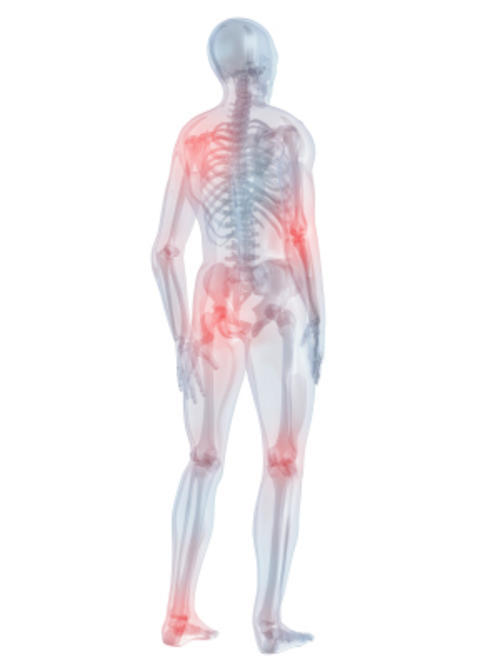Osteoporosis
Osteoporosis refers to a serious medical condition where one’s bones start thinning and become fragile. Osteoporosis affects millions of people  across the world, causes severe pain and makes one more susceptible to fractures.
across the world, causes severe pain and makes one more susceptible to fractures.
Risk Factors for Osteoporosis
Osteoporosis occurs due to several factors, including but not limited to the following:
- Decreased hormone levels – Osteoporosis is most commonly caused by low levels of oestrogen (in women) and androgen and testosterone (in men).
- Ageing – The density of your bones decreases as you age, making you more susceptible to osteoporosis.
- Calcium deficit – If there is a shortage in calcium intake, your body reabsorbs calcium from the bones to keep vital organs functioning normally. If the body does not get enough calcium from your diet, your bones become brittle over time.
- Sedentary lifestyle – An inactive lifestyle puts you at an increased risk for osteoporosis.
- Low body weight – People who weigh less than 60 kilos have low bone mass to begin with and hence they are more likely to develop osteoporosis. Thin and petite women are at greater risk.
- Being female – While any one can develop osteoporosis, women over the age of 60 are particularly prone to it due to menopause and the corresponding lowering of oestrogen.
- Smoking and alcohol – Heavy smoking and drinking weaken your bones by hampering calcium absorption and significantly increase your chances of developing osteoporosis.
- Not having children – Or having them late in life can also cause osteoporosis.
- Family history – If you have a family member who has osteoporosis, you are more likely to develop it as well.
- Medications – Corticosteroids, antacids with aluminium, and anticonvulsants have been known to increase your susceptibility to osteoporosis.
Ways to Prevent Osteoporosis
Osteoporosis is a silent condition so there’s nothing to alert you if you develop this condition. The best course of action is therefore to take preventive measures to keep osteoporosis at bay:
- Exercise – Get at least 30 minutes of exercise everyday – walk, jog, swim, or go to the gym for cardio/aerobics/ weight lifting – to strengthen your bones.

- Calcium – Adults need about 1,000 mg of calcium daily for maintaining and regenerating bone tissue. You can get this from a combination of sources such as orange juice, whole milk, salmon, yogurt, cheese, tofu, broccoli, peas, almonds, and calcium supplements.
- Vitamin D – If your body lacks Vitamin D, it cannot absorb calcium. So make sure you eat lots of Vitamin D rich foods like fish oil, fish, and eggs. Vitamin B6, Vitamin B12, and Vitamin K are all also essential for bone health, as are minerals like phosphorous and magnesium.
- Assess your bone health – You can take the dual X-ray absorptiometry (DEXA or DXA) and quantitative computed tomography (QCT) test to determine your bone density.
- Consider bisphosphonates – These are anti-resorptive medications that can decelerate or stop bone tissue from dissolving. However, they do have side effects, so ask your physician if bisphosphonates can help you.
 across the world, causes severe pain and makes one more susceptible to fractures.
across the world, causes severe pain and makes one more susceptible to fractures.